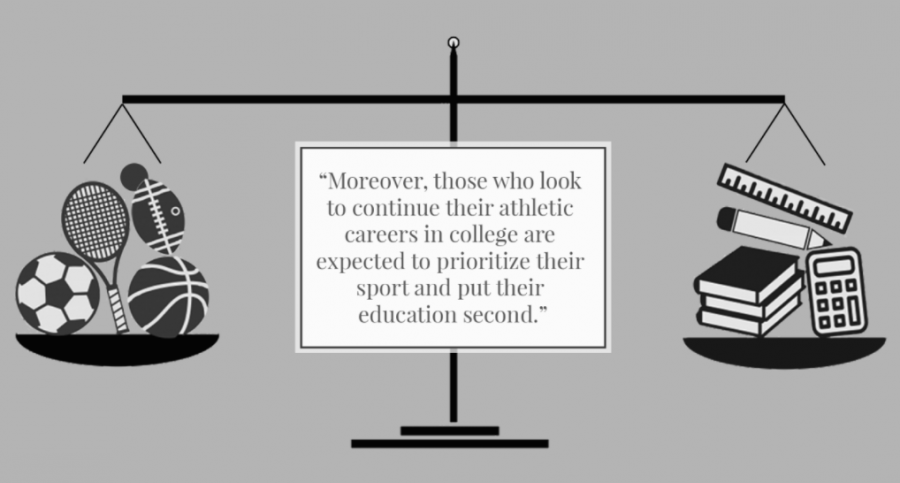Unfair standards for athletes
Let’s face it: the academic pressure placed on Diamond Bar High School students is immense. But the group on campus that most definitely receives excessive and unnecessary pressure is student-athletes. Not only are they expected to live up to the expectations of their peers, but they are also placed under additional stress from their practices and competitions. Ultimately, the standards set for these Brahmas are hardly, if at all, attainable without forfeiting some part of their high school experience.
As an athlete and AP and Honors student myself, trying to balance schoolwork, non-athletic extracurriculars and club swim events has forced me to sacrifice opportunities to relax and hang out with friends. Speaking on behalf of all teenagers, maintaining social interactions is important because the social skills we develop at this age provide a foundation for us to build on as adults. Even more so, I’m often left with insufficient time to rest up for the next day’s activities– and the school swim season has not even begun yet.
More so, as a student athlete who plans on taking more higher level classes during my junior and senior years, I am distressed as to how I will be able to manage my academics and maintain a healthy social life all while partaking in athletics both during and outside of school.
Moreover, those who look to continue their athletic careers in college are expected to prioritize their sport and put their education second. But this isn’t the case for a high school student-athlete; The workload that students receive at DBHS is immeasurable, and partaking in athletics seems to only inhibit athletes from studying and preparing accordingly.
One way that student-athletes can cope with this issue is by taking easier classes, perhaps swapping from advanced to regular courses. This allows them more time to focus on their sport by minimizing schoolwork.
However, such decisions come with their own consequences. Regular courses are unweighted, meaning less points are added to a student’s total grade point average. While athletes must only have a GPA of 2.0 or higher in order to maintain eligibility for college scholarships, students who may hope to compete collegiately yet also aspire to major in other fields in the future may be left at a disadvantage should they choose to take less intensive classes. After all, taking regular classes can lessen a student’s chances of getting accepted into the school of their choice, especially if admission is highly competitive, whereas taking specific AP courses can mold them into becoming a more appealing applicant to colleges..
Student athletes such as myself, regardless of whether we want to compete in college, are placed under unnecessary and excessive stress simply due to the fact that we play a sport. What makes matters worse is that the only seemingly available way to manage this is to sacrifice something equally as important. Though it is the student’s decision to involve themselves in sports, the amount of expectation placed on high school athletes’ shoulders is burdensome and unfair.
Your donation will support the student journalists of Diamond Bar High School. Your contribution will allow us to purchase equipment and cover our annual website hosting costs.



